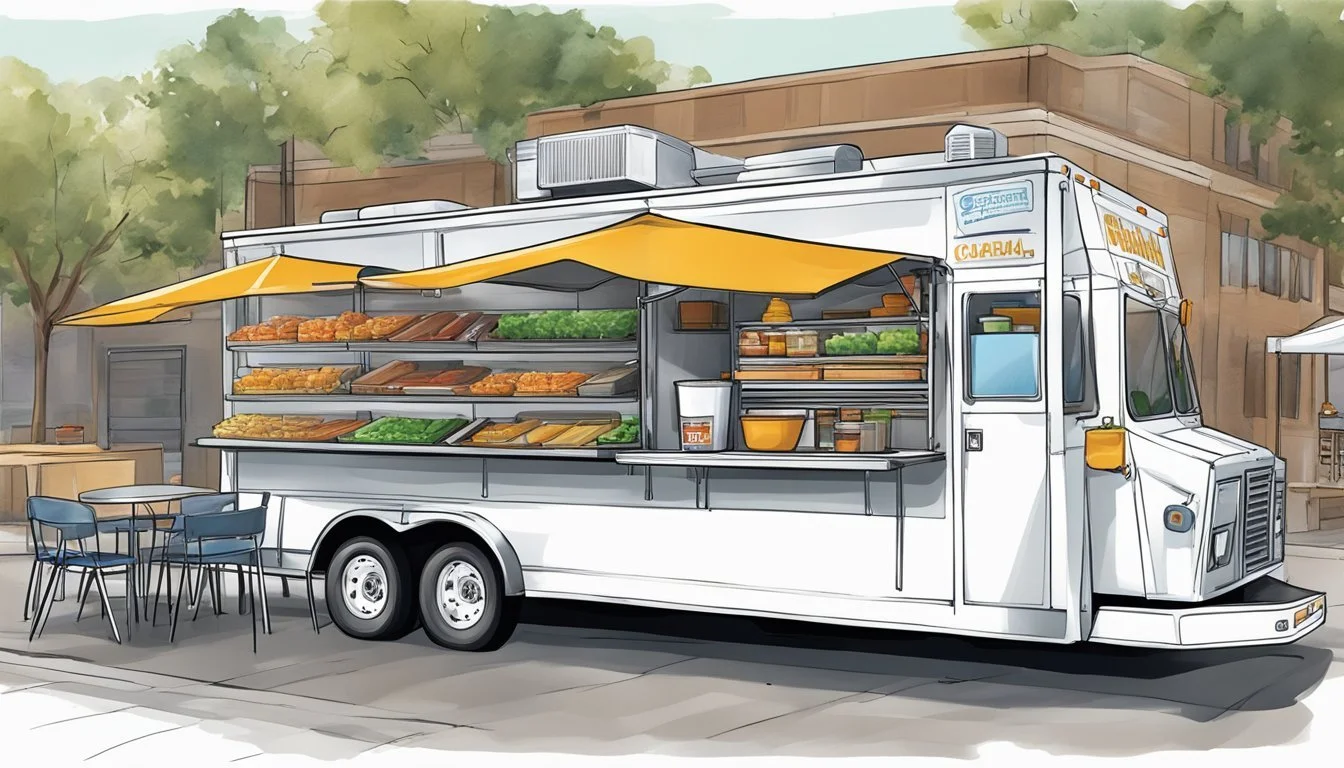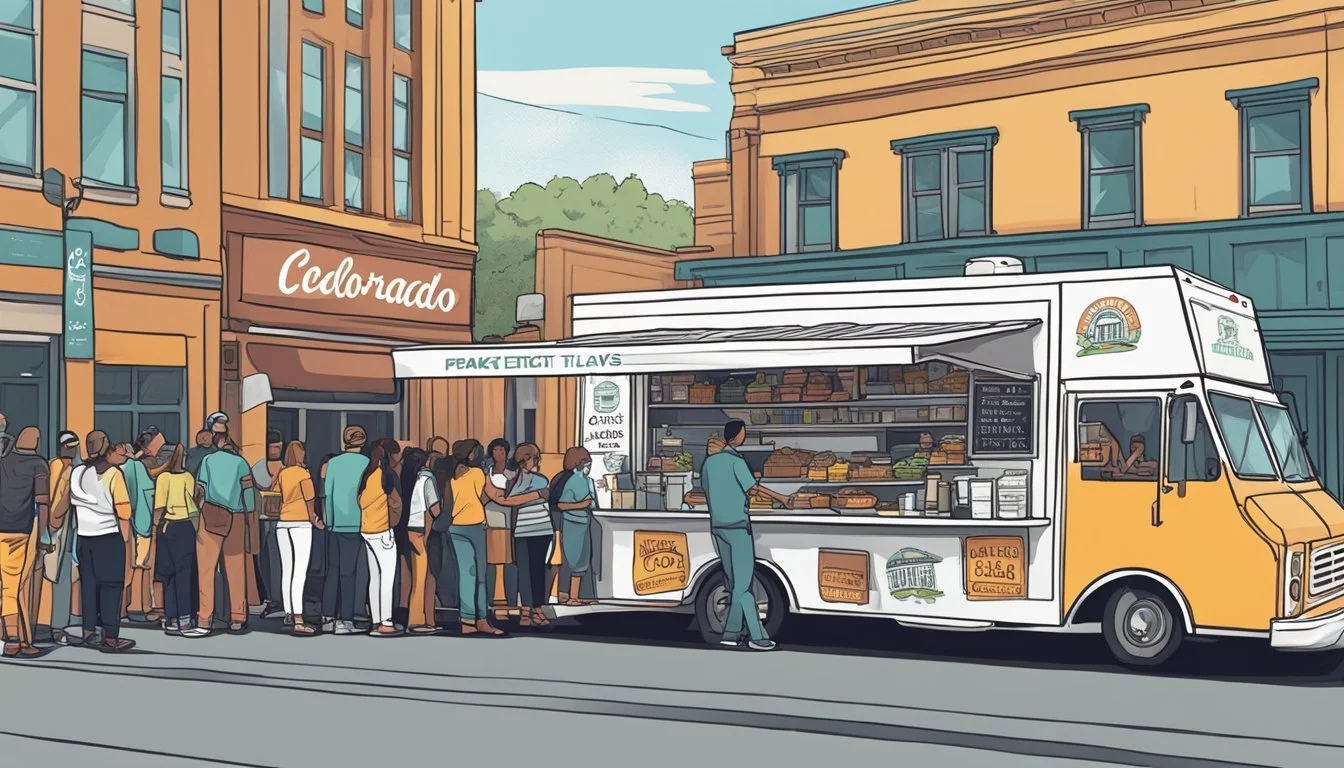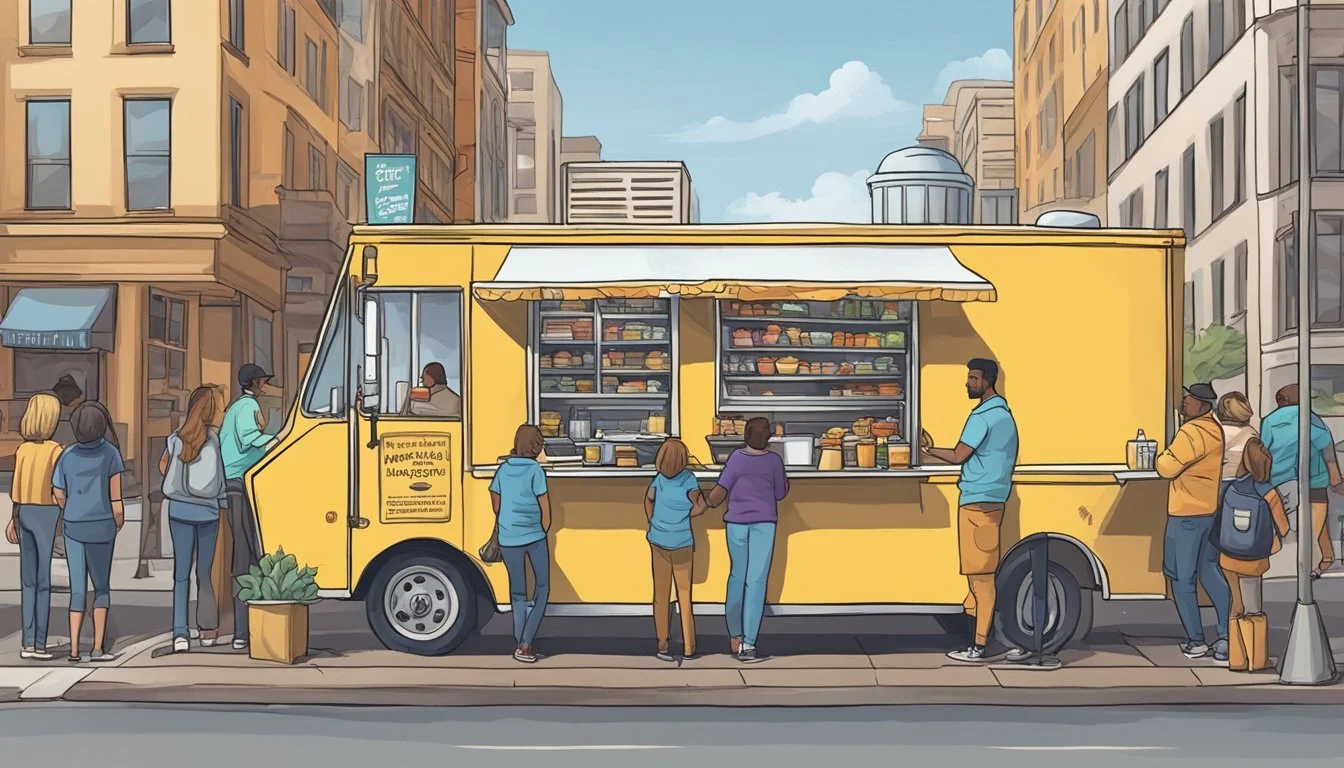Food Truck Laws in Colorado
Understanding Regulations for Mobile Food Vendors
Operating a food truck in Colorado involves navigating through a series of regulations and obtaining the necessary licenses and permits. These legal requirements are in place to ensure food safety, compliance with tax laws, and adherence to local zoning codes. Food trucks, as mobile food establishments, must keep up-to-date with both state-wide regulations and the local ordinances of the cities in which they operate.
The specific licenses and permits required can include a business license, various food handler permits for employees, and a seller's permit, all of which align with the similar standards imposed on brick-and-mortar restaurants. Additional compliance with food safety laws, OSHA regulations for employee safety, and proper waste disposal are also critical for food truck operations. Regulations in Colorado are subject to change, so staying informed on local government food truck regulation is crucial to maintain legality and the continuity of business operations.
Understanding these legalities is just the starting point for food truck owners in Colorado. It's also important for them to be aware of the regional health department requirements regarding food preparation and storage to ensure public health safety. Properly managing a food truck includes more than just creating a menu and serving food; it requires a thorough knowledge of the legal landscape to ensure that the business thrives without the setbacks of non-compliance.
Starting Your Food Truck Business
Embarking on a food truck venture in Colorado demands a detailed business plan, a well-thought-out structure, and secure startup funding. These elements are crucial for setting a strong foundation and steering the business towards success.
Developing a Business Plan
A robust food truck business plan should encompass market research, menu creation, and financial projections. The plan serves as a blueprint guiding the entrepreneur through the complexities of the industry. It's imperative to delimit startup costs, which can include the purchase of the truck, kitchen equipment, and initial inventory. This document must cover the operational aspects of the business, from sourcing ingredients to managing waste, as well as strategies for marketing and growth.
Choosing a Business Name and Structure
Selecting a compelling business name and choosing a legal structure are pivotal steps. Options like an LLC (Limited Liability Company), sole proprietorship, or partnership have distinct implications on liability and taxes. Registering the business with an EIN (Employer Identification Number) is crucial as it allows for the proper management of payroll and taxes. Food truck businesses often opt for an LLC due to its liability protection and flexibility.
Securing Startup Funding
Finding adequate food truck funding is often one of the most challenging steps. Entrepreneurs can explore a variety of options, such as small business loans, investment from partners, crowdfunding, or personal savings. It is essential to present potential investors with a thorough food truck business plan that clearly outlines the expected return on investment. Providing detailed financial forecasts can bolster the confidence of lenders or investors in the viability of the food truck business.
Legal Requirements and Licensing
Operating a food truck in Colorado entails complying with a range of legal requirements and licensing procedures to ensure public safety and adherence to state and local regulations.
Obtaining Necessary Permits and Licenses
To operate legally, food trucks in Colorado must acquire several permits and licenses. The cornerstone is a business license, which authenticates a food truck as a legitimate entity within the state. Additionally, a mobile food facility permit from counties or cities where the truck will operate is essential. Costs for these permits vary, but information on them can usually be found through the Colorado Secretary of State or local city websites. Food trucks may also need a Colorado sales tax license from the Department of Revenue.
Registering Your Business
Registration is a pivotal step in establishing a food truck business in Colorado. Business owners must register with the Colorado Secretary of State and select an appropriate legal structure such as an LLC or sole proprietorship. The registration process requires payment of a license fee, and the business may need to obtain a Colorado food handler card, demonstrating completion of food safety training to prevent foodborne illness.
Food Safety and Health Permits
Adhering to food safety standards is critical. All food truck operators in Colorado are required to secure a public health permit, ensuring their operation meets health and safety guidelines. Additionally, employees should obtain an employee health permit and potentially complete a ServSafe course, a nationwide recognized food safety training. In some counties, if serving alcohol, a liquor license is necessary, subject to separate regulations governing alcoholic beverages.
Operational Guidelines
In the state of Colorado, food truck operators must strictly adhere to a set of operational guidelines that encompass vehicle compliance, health and safety standards, and local parking regulations to maintain their license to operate.
Vehicle Regulations and Compliance
Mobile food vendors must ensure that their vehicles comply with both state and local regulations in Colorado. This includes maintaining adequate vehicle insurance, adhering to safety standards, and passing vehicle inspections. Trucks should be equipped with proper waste disposal systems and must comply with food safety ordinances related to temperature control.
Checklist for Vehicle Compliance:
Adequate vehicle insurance
Compliance with safety and driving regulations
Proper waste disposal systems
Temperature control for food storage
Health Inspections and Food Handling Procedures
Regular health inspections are mandatory for all retail food establishments, including food trucks. These inspections verify that food handling procedures are followed correctly. Every employee involved in food preparation must have a valid food handler permit. Trucks must be prepped for inspection with emphasis on cleanliness and maintenance.
Food Handling Procedures:
Cleanliness of the food prep area
Proper food storage and temperature control
Maintenance of cooking equipment
Valid food handler permits for employees
Local Laws and Parking Regulations
Local laws dictate where food trucks may operate and park. These regulations may vary by city within Colorado, and it is the responsibility of the food truck operator to be informed about these differences. Parking locations must be authorized, and adherence to local laws ensures the avoidance of fines and penalties by regulatory bodies such as the City and County of Denver.
Key Local Regulations:
Authorized parking locations and times
Compliance with city-specific food truck rules
Recognition and adherence to public health laws
By following these operational guidelines, mobile food vendors can ensure they meet the necessary standards for running a food truck in Colorado, resulting in a successful and legally-compliant business.
Financial Management
Managing finances effectively is critical for food truck owners in Colorado. They need to navigate through various financial obligations which include handling sales tax and maintaining accurate financial accounts, alongside understanding and controlling operational costs to achieve a favorable profit margin.
Handling Sales Tax and Financial Accounts
In Colorado, food truck operators must create an account with the Colorado Department of Revenue to submit sales tax. The sales tax must be collected from customers on each sale, and the total amount must be reported and paid to the department periodically. Responsible management of financial accounts is essential. Food truck owners typically use accounting software or a professional accountant to track revenues, manage cash flow, and ensure all taxes and fees are paid correctly and on time.
Understanding Operational Costs and Profit Margin
Operational costs for food truck businesses cover a wide array, including the annual license fee, which varies by city but is a necessary expense for legal operation. Food cost, labor, fuel, maintenance, and marketing also contribute to the overall expenses. A food truck's profit margin hinges on the ability to control these costs while setting appropriate prices. Operators should conduct regular reviews of their financial performance to identify areas where efficiency can be improved and to ensure that the profit margin remains healthy.
Marketing and Growth
In a competitive industry like food trucks, a robust marketing strategy is critical for growth. Both new and established food truck businesses benefit significantly from strategic promotion and expansion efforts that can include branching out to multiple locations and adding event catering services.
Creating a Marketing Strategy
A successful food truck marketing strategy requires a clear understanding of the target audience and a creative approach to engagement. They should consider leveraging social media platforms to showcase their menu and highlight the uniqueness of their ingredients. The team running the food truck can create buzz with special promotions, collaborate with local restaurants or food bloggers, and apply local market trends to craft compelling campaigns.
Social Media Campaigns: Utilize Instagram, Twitter, and Facebook to post mouth-watering images of the menu.
Email Marketing: Keep loyal customers informed about new locations and menu items.
Collaborations: Partner with local businesses to cross-promote products and services.
Expanding to Multiple Locations and Event Catering
They can widen their reach by expanding to multiple locations, potentially growing into a fleet of trucks that serve a wider area. This geographical expansion should be driven by data, customer feedback, and the presence of a strong demand for the food truck's offerings. Moreover, event catering adds a lucrative revenue stream, and it's an opportunity to cater to private parties, corporate events, and festivals, further increasing brand visibility.
Location Analysis: Study traffic patterns, demographic data, and competition to select ideal new locations.
Catering Services: Offer specialized catering menus for events, and use these opportunities for marketing.
Scalable Systems: Implement processes that are efficient and easily replicated to ensure quality across locations.
Insurance and Risk Management
When operating a food truck in Colorado, managing risks with the correct insurance policies is essential. Food truck owners must obtain a Certificate of Insurance (COI) which provides proof of their insurance coverage. This coverage typically includes multiple forms of insurance to protect against a variety of incidents that could occur.
Types of Insurance Required:
General Liability Insurance: Protects against third-party claims for bodily injury or property damage.
Auto Insurance: Mandatory for the vehicle itself, covering collisions and other automotive accidents.
Workers' Compensation: Necessary if the food truck has employees to cover work-related injuries or illnesses.
Beyond mandatory insurances, owners may choose to secure more comprehensive coverage:
Property Insurance: Covers loss or damage to the food truck or its contents due to incidents like fire or theft.
Product Liability Insurance: Offers protection if the food served causes illness or injury.
Business Interruption Insurance: Provides financial support if the business operations are halted due to covered events.
A typical business insurance policy for food trucks in Colorado might bundle several of these coverages together, providing a more cost-effective solution for comprehensive protection. It's also vital for food truck operators to regularly review and update their policies to ensure they remain adequate as their business grows and changes.
Risk Management Considerations:
Regularly review and adjust insurance coverage to align with current operational risks.
Maintain a well-documented COI for verification and to facilitate new opportunities such as event participation.
Ensure compliance with all local and state regulations to reduce the likelihood of legal issues.
Effective insurance and risk management strategies are non-negotiable for food truck owners to safeguard their business and assets in the vibrant Colorado food truck industry.
Contact and Support
For operators in the Colorado food truck industry, securing the appropriate contacts and understanding where to find support is paramount. Essential government departments provide readily available resources to facilitate compliance and ensure smooth business operations.
Navigating Government Departments and Resources
Department of Public Health & Environment
Food Safety Section
Address: 4300 Cherry Creek Drive South, DEHS A2, Denver, CO 80246
Phone Number: (303) 692-3645
When starting or maintaining a food truck business, the Colorado Department of Public Health & Environment is a critical contact for matters related to health and food safety. Operators may visit the department's Retail Food Licensing page for detailed information, including application forms and regulatory guidance.
Department of Revenue
Licensing and Permits
Address: 1375 Sherman Street, Denver, CO 80261
Phone Number: (303) 238-7378
For tax laws, sales tax licenses, and business registration, the Department of Revenue is the go-to resource. They offer comprehensive support for food truck operators to navigate tax regulations and acquire necessary seller's permits.
Local City or County Clerk's Office
Business Licenses and Local Ordinances
Address: Varies by city or county
Phone Number: Varies by city or county
Local city or county clerk's offices are responsible for providing business licenses, local permits, and information regarding specific ordinances that may affect food truck operation within their jurisdictions. It is essential for operators to establish contact with their local office for tailored advice and support.






